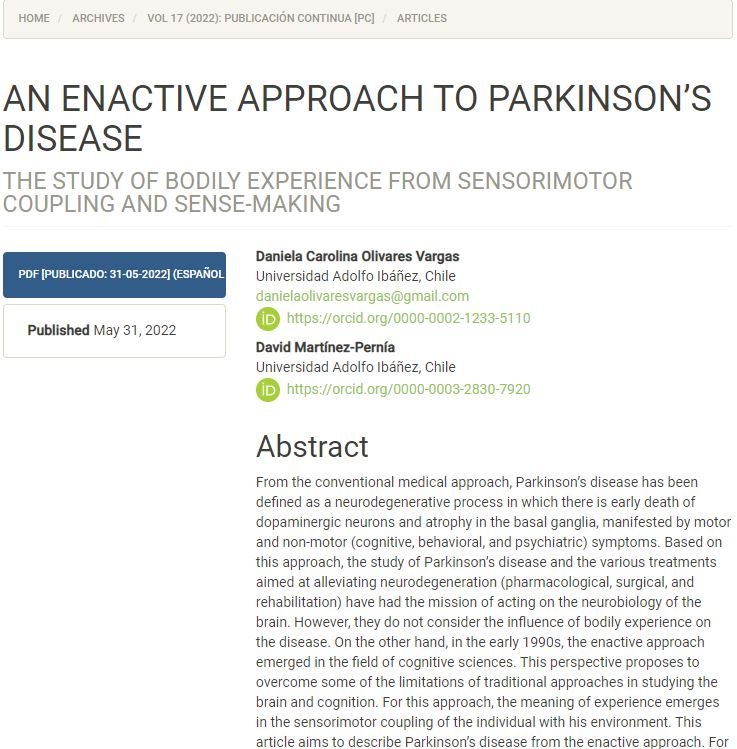06 de junio 2022
Abstract:
From the conventional medical approach, Parkinson’s disease has been defined as a neurodegenerative process in which there is early death of dopaminergic neurons and atrophy in the basal ganglia, manifested by motor and non-motor (cognitive, behavioral, and psychiatric) symptoms. Based on this approach, the study of Parkinson’s disease and the various treatments aimed at alleviating neurodegeneration (pharmacological, surgical, and rehabilitation) have had the mission of acting on the neurobiology of the brain. However, they do not consider the influence of bodily experience on the disease. On the other hand, in the early 1990s, the enactive approach emerged in the field of cognitive sciences. This perspective proposes to overcome some of the limitations of traditional approaches in studying the brain and cognition. For this approach, the meaning of experience emerges in the sensorimotor coupling of the individual with his environment. This article aims to describe Parkinson’s disease from the enactive approach. For this, the alterations in sensorimotor coupling and sense-making in this pathology will be shown. From this, we will reflect on the therapeutic implications of rehabilitation based on sensorimotor coupling and the creation of individual and participatory sense-making.


